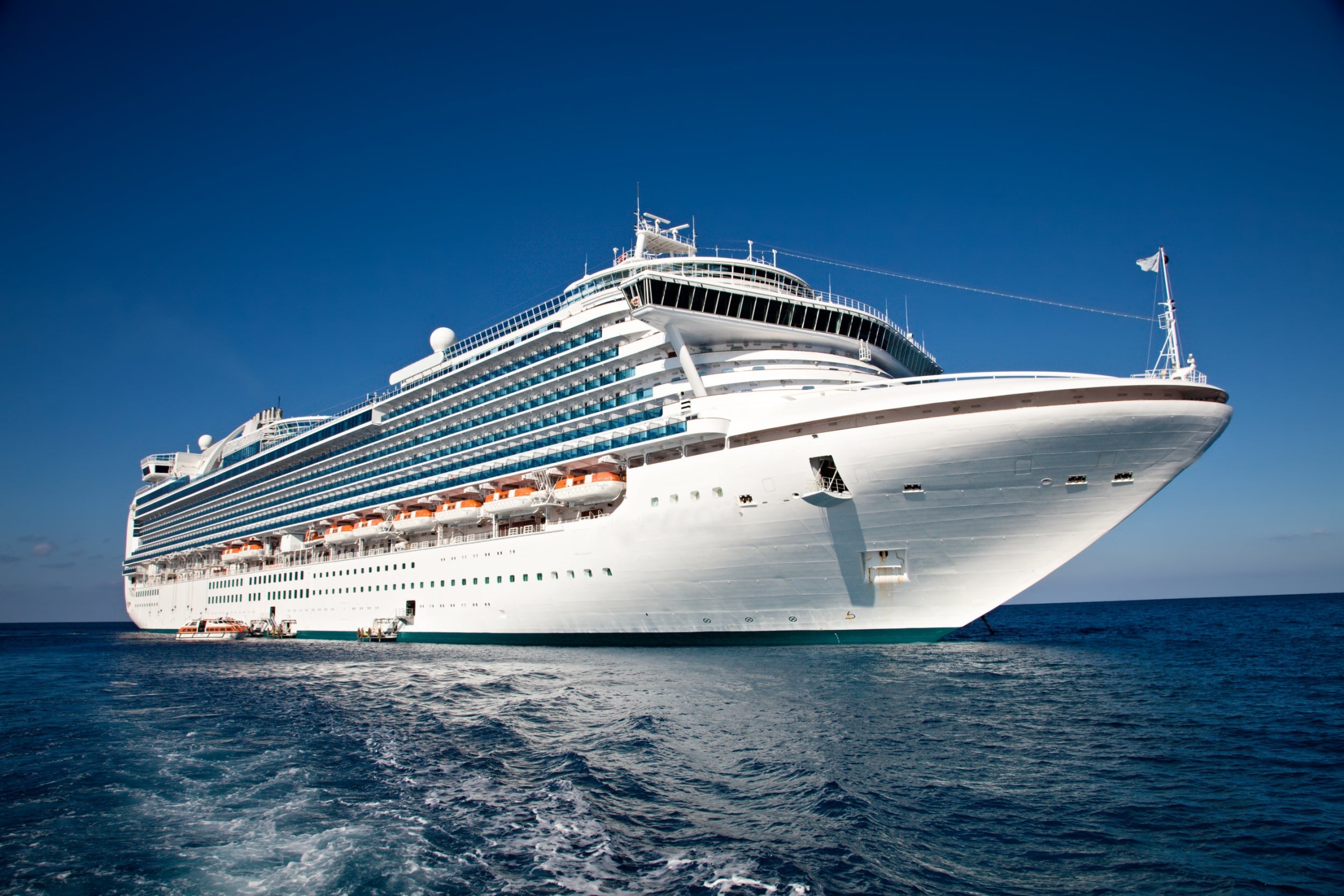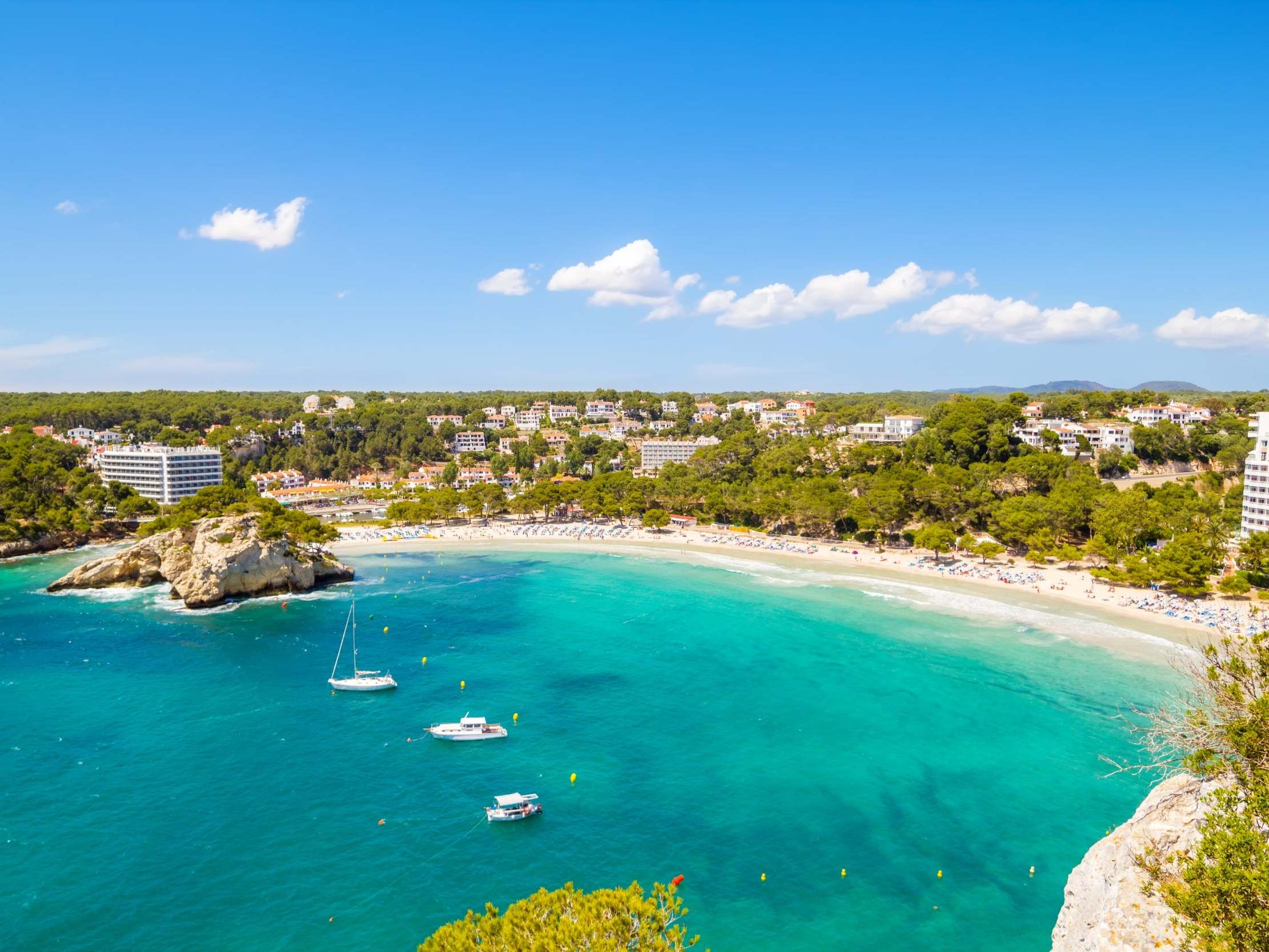Coronavirus: What will happen to cruise ships and crew as the pandemic continues?
Simon Calder answers your questions on the fast-moving situation


Q Given that cruise lines are cancelling their immediate future programmes, where are the ships going to go, and what is to happen to crew?
Pamela
A As the coronavirus crisis has unfolded, the entire travel industry has taken a beating – but the cruise business is arguably suffering most intensely. But the outbreak of Covid-19 has devastated the short- and long-term prospects for cruising.
Diamond Princess, the ship quarantined by Japan, became a coronavirus hotspot in its own right. Grand Princess was forced to remain off the coast of California for days after cases were discovered on board. And ships such as Marella Discovery, operated by Tui, were refused permission to land by one country after another.
Where the ships go is perhaps the least of the concerns. While each ship has a home port, many will simply stay where they happened to be when the “future cruises cancelled” order came through from head office. Ahead of operations recommencing, they may be repositioned – or passengers invited to join them wherever they happen to be.
Crew whose ships are moored and empty face a bleak future. Cruise-ship workers are particularly vulnerable. They tend to be engaged on short-term contracts with few employment rights. Many have simply been laid off and given tickets for what will be, for many, a difficult journey home. They can only pray that the crisis will begin to ease sooner rather than later.
Yet the long-term prospects for the cruise industry look bleak. For decades cruising has expanded relentlessly. Steady growth has been fuelled by a rising number of older travellers with significant disposable income together with increasing appeal to younger “new to cruise” customers.
The warning last week from the Foreign Office for travellers aged 70-plus to avoid cruises provided official confirmation of the vulnerability of older passengers. That holds true not just for coronavirus but also for the not-infrequent outbreaks of norovirus on board cruise ships.
Confidence in the core market has been badly shaken, and it will be difficult to convince those who have not yet tried cruising that it can provide an enjoyable and relaxing holiday. As with the airline business, some ships will be taken out of service permanently – with older and larger vessels the most vulnerable.
For hundreds of thousands of cruise workers, this is the start of a long, cruel summer across Europe and the world.

Q Would you pay the balance (£1,500) on a one-week package holiday to Menorca in July? It is covered by Abta and basic travel insurance.
Ganu G
A Yes. Despite the raging uncertainty and the appearance of a travel industry looking close to meltdown, I believe it would be rash to do other than pay the balance of a package trip where the holiday company already has your deposit.
You would be writing off that cash for certain. And while the market is awash with capacity at the moment, the mainstream holiday industry is in such turmoil that there could be deep cuts in supply.
If you pay the balance, however, you are assured that either the holiday will go ahead as planned at the price you agreed, or you will get your money back.
It is sadly inevitable that some UK tour operators will go out of business due to the shock of coronavirus. This month new bookings have been vanishingly low. Everyone who decides not to pay the balance on a trip represents a short-term gain for the firm but a longer-term problem – they have to try to fill that newly created vacancy. Well-run companies with strong balance sheets should survive, but others will not.
Membership of Abta, the travel association, is a valuable asset: travel firms must adhere to a consumer-friendly code of conduct obliging them to operate to high standards. But If your holiday company were to fail after you pay the balance, financial cover will be provided not by Abta but through Atol protection. This government-backed scheme is run by an offshoot of the Department for Transport, the CAA.
I can’t promise that you will get your cash back in a hurry; there are still some clients of Thomas Cook, which failed almost six months ago, who have yet to receive the payouts that are due to them. Most straightforward bookings were paid within about two months.
Other expenses not covered by Atol, such as airport hotels and parking, may be covered by travel insurance – though with a basic, no-frills policy this is unlikely.
Naturally, though, I hope that everything calms down, and that your holiday on one of Spain’s loveliest islands proceeds happily.

Q I’ve booked a week’s holiday to Malta next week. Because of the compulsory quarantine for two weeks for all arrivals now imposed, it obviously isn’t worthwhile. While easyJet is allowing flight changes at no charge, the issue is my hotel costs. The agent is refusing to allow me to either cancel without penalty or defer my hotel booking. What’s the best way to get a refund: via travel insurance or via the credit card I used to book it.
Johnny G
A As you learnt on Friday, the government in Malta has imposed 14 days mandatory quarantine to those who arrive in Malta from any country. This is quite a move for the smallest member of the European Union, which is heavily dependent on tourism – particularly from the UK. The new rule renders all short-term visits pointless.
Had you booked a proper package holiday – with flights and accommodation in the same transaction – then it would have been a simple matter to request a full refund. As no company can at present deliver a meaningful holiday in Malta, under the Package Travel Regulations your cash would be refunded within two weeks.
As it is, easyJet is doing the right thing and allowing flexibility. Regarding the accommodation: any decent travel agent who booked the trip for you should apply pressure on the hotelier to allow you at least to defer your trip. But some online travel agents (OTAs) are playing hardball, and typically referring customers to terms that say they don’t provide refunds or rebooking.
In these circumstances the first step is to see if you can get recompense though your credit-card company, though the normally straightforward refunds obtainable under Section 75 are clouded when you book travel through an agent. This may be further complicated if the OTA has in turn booked your accommodation through one or more intermediaries, as often happens.
So travel insurance, assuming it was bought before the coronavirus crisis unfolded, could be your last resort.
Email your question to s@hols.tv or tweet @simoncalder
Join our commenting forum
Join thought-provoking conversations, follow other Independent readers and see their replies
Comments